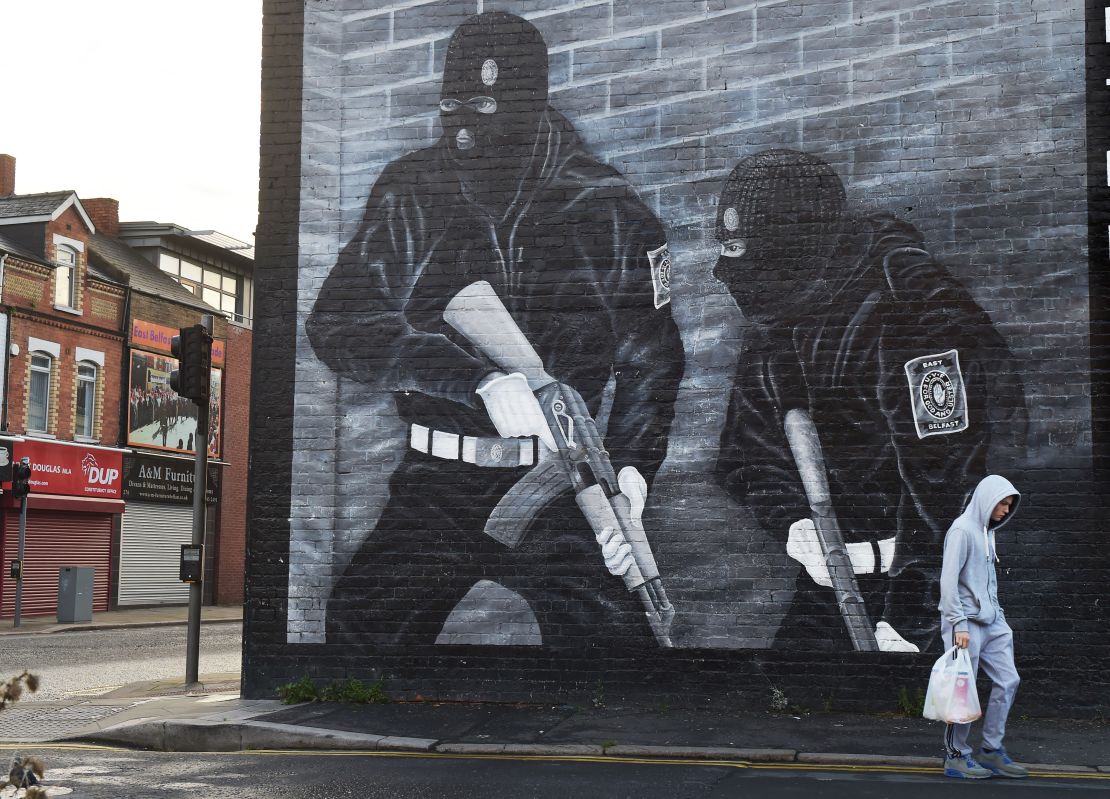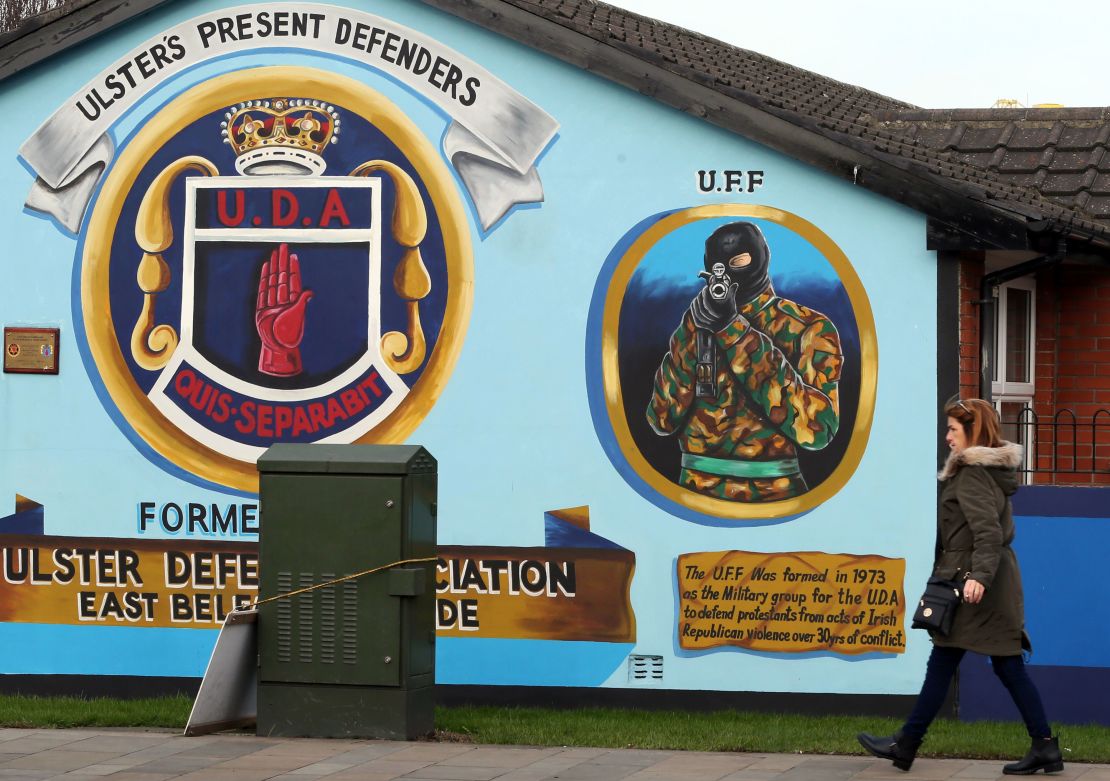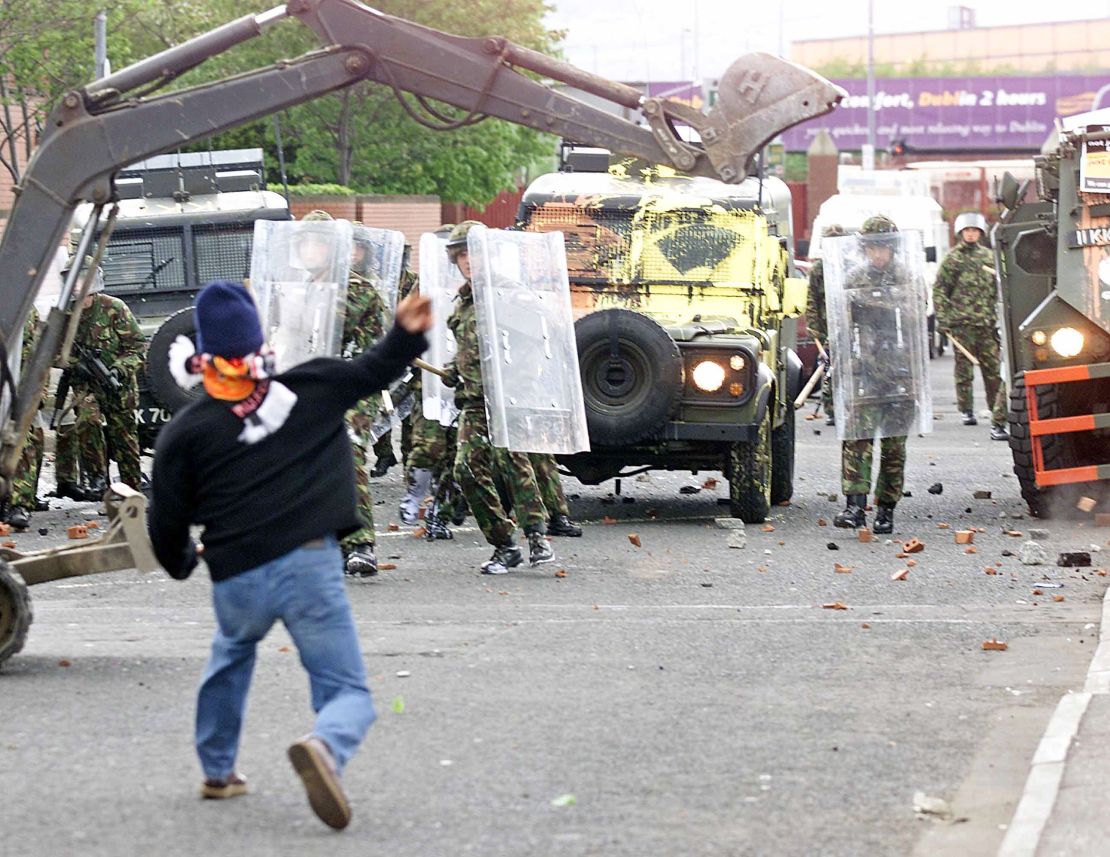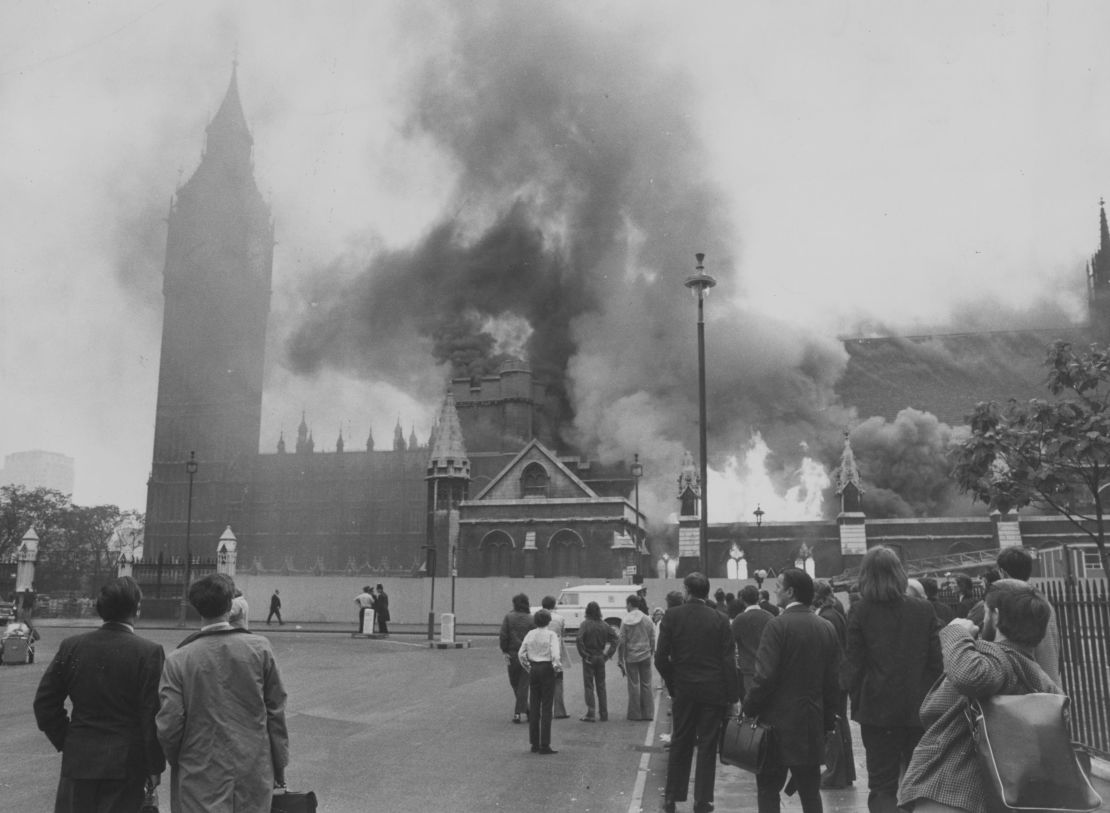A deal to prop up British Prime Minister Theresa May’s government could come at the cost of peace in Northern Ireland, politicians have warned.
Speaking in London Thursday after a meeting with May, prominent Northern Irish politician and Sinn Fein leader Gerry Adams said he had told May she was “in breach” of the Good Friday Agreement – the peace treaty which ended 30 years of deadly sectarian violence known as “The Troubles.”

Peace at risk
Following a bruising election result in which her Conservative Party squandered a 12-seat majority in Parliament and found itself struggling to form a government, May has attempted to form an alliance with the far-right Democratic Unionist Party.
Under the Good Friday agreement, unionists and Irish republicans like Sinn Fein entered into a power-sharing government. The UK government, which at that point gave up direct rule over Northern Ireland, was intended to be a neutral arbitrator between the parties.
By forming a government with the DUP, many commentators have argued the Conservatives would undermine this arrangement and risk the peace process.
“There’s a level of incompetence … and lack of understanding by this government on Northern Ireland that is very troubling,” Peter Hain, former Labour Secretary of State for Northern Ireland, told CNN.
His comments echoed those of former Conservative Prime Minister John Major, who warned earlier this week that May’s actions put the “fragile” peace at risk.
“A fundamental part of that peace process is that the UK government needs to be impartial between all the competing interests in Northern Ireland,” he told the BBC. “And the danger is that however much any government tries, they will not be seen to be impartial if they are locked into a parliamentary deal at Westminster with one of the Northern Ireland parties.”
“The peace process, which was very hard earned over very many years by a lot of people, people shouldn’t regard it as a given. It isn’t certain, it is under stress. It is fragile,” he said.

What were ‘The Troubles’?
More than 3,600 people died in sectarian violence between 1968 and 1998 as unionist and republican terrorist groups carried out bombings, assassinations and other crimes.
The fighting had its roots in a centuries-old dispute between the UK and the Republic of Ireland over control over the northern part of the island.
Britain colonized the entirety of Ireland beginning in the 1600s, and it was incorporated into the UK in 1801. In 1920, guerrilla warfare between what became known as the Irish Republican Army (IRA) and unionists led to the partitioning of Northern Ireland and the future Republic of Ireland.
Unionists are typically Protestants, who want to keep Northern Ireland as a part of the UK, while republicans are mostly Catholic and favor a united Ireland.

Republicans in Northern Ireland, around 35% of the population at the time, did not accept the partition and some adopted armed struggle as a way to break away from the UK.
Militant activity by the IRA and other republican groups sparked a rise in Unionist paramilitary and terrorist organizations, as well as a forceful and often brutal response by the British Army, which sent thousands of troops to occupy the country.
Bloody Sunday – a January 1972 shooting in Derry of 14 unarmed republican activists by the British Army – was a flashpoint in the conflict.
In 1985, the IRA attempted to assassinate then Prime Minister Margaret Thatcher with a time-delay bomb planted at the hotel she and her cabinet were staying at in Brighton. Thatcher escaped injury, though five people were killed including a sitting Conservative MP.
The IRA also carried out a large-scale bombing campaign targeting major cities throughout the UK mainland, including deadly attacks in London and Birmingham.
Ceasefire negotiations began in the 1980s, eventually culminating in the Good Friday Agreement, which was negotiated by the governments of the UK, US and Ireland, as well as representatives of Northern Ireland groups.

Political chaos
Both Sinn Fein and the DUP have their roots in “The Troubles.”
Sinn Fein, a left-wing liberation party modeled on similar movements in South Africa and the Palestinian territories, was originally formed as the political wing of the IRA.
The DUP are a far-right Christian party founded by Protestant preacher Ian Paisley in 1971. The party has historical links to unionist paramilitary groups, and during the 2017 election campaign some of its candidates were endorsed by the Loyalist Communities Council, which is supported by several militant organizations.
Under the Good Friday Agreement, unionist and republican parties are supposed to form a power-sharing administration that governs Northern Ireland.
However, in January, Sinn Fein pulled out of the government over a corruption scandal involving DUP leader Arlene Foster, who is currently negotiating with May.
That has left the region without a government for five months. Sinn Fein and others have argued that any deal in which the DUP formed part of a UK government would worsen the current situation.
Rule over Northern Ireland is due to revert to London if parties fail to reach a deal on a power-sharing government, but what that means for the country if the DUP is a part of that government at Westminster remains to be seen.
CNN’s Lauren Said-Moorhouse and Christiane Amanpour contributed reporting.







